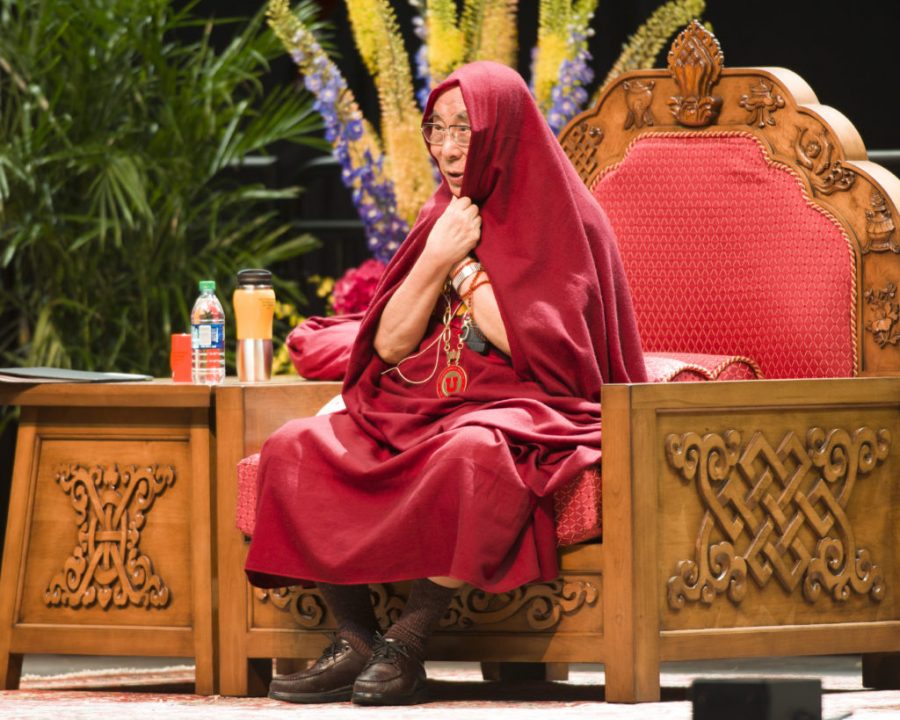Children rarely have preconceptions. They are constantly learning, experiencing the struggles and triumphs of life in increments, and attaining at all times skills and insights they’ll need to survive on their own. It’s a fact of human evolution. I’m always astounded when I see adults who’ve forgotten those essential lessons we learn first as children. Almost universally we are taught to be kind – yet there are so many rude, inconsiderate adults. We are taught to think before we speak. The opposite is far more often acted.
One lesson we are (or should be) taught as children is to be kind to our enemies. To react peacefully to people who, without exception, irk us in essential ways. It’s a theory that has roots across the world but is most prevalently practiced by those who subscribe to Eastern philosophical traditions like Buddhism or Taoism. Treat your enemy with compassion. React to war with peace. The Dalai Lama nearly said as much in his 1989 Nobel Peace Prize acceptance speech: “People inflict pain on others in the selfish pursuit of their happiness or satisfaction. Yet true happiness comes from a sense of brotherhood and sisterhood.” It’s because I truly believe this that I’m so disquieted by the us/them mentality cultivated by those who’ve recently been elected to the high offices of this land. As Americans – but more so as humans – we should not accept insults and vitriol as standard discourse between rivals.
It begins with name-calling. Perpetual pugilists begin by taking the low road, coining phrases like “Crooked Hillary,” “Lyin’ Ted” or “Little Marco.” They set themselves apart from those whom they oppose. If they are the enemy, the logic (supposedly) goes, then I surely am the hero of this struggle. Like the protégés of Robert Greene, these people take to heart dictums as thoughtless as “Crush your enemy totally.” When you occupy this mindset – the lone, infallible crusader – it becomes far too easy to discount legitimate criticism and cling instead to the paper-thin praise of equally obstinate supporters.
This leads to highly visible people using Twitter to inaccurately denounce legitimate news sources, to call objectively successful peers “over-rated,” to say that all people who disagree are “stupid” or “fools.” The benefit of such discourse is unclear. Ultimately, it only serves to make one appear as if they are incapable of being called wrong and rouses in supporters unfortunate emotional responses like disgust, anger and divisiveness.
I argue that having the temperament to acknowledge your mistakes and shortcomings is a crucial quality of being alive and well-adjusted. Even if you disagree with what’s been said to or about you, it is important to react magnanimously to those who live across the aisle. We must concurrently be kind to those who are unkind to us, and that may trouble our natural sensibilities. Truly there may be nothing more difficult. The parts of us that wish most for retributive justice will feel slighted when we treat our enemies and antagonists with kindness, with the goal to see a situation from all angles. However, when we step away from conflict and adjust our default setting – the lens through which we naturally view the world, where we are right and true and know best – we earn the chance to cooperate and build constructive, working relationships with those who have different ideas than us. This is the necessary base for all positive interaction between competing peoples. Society, industry and communication grow in the spaces between opposing ideas. This is how the world becomes a more peaceful place.
And yet, we don’t see this principle at all enacted in the most visible areas of this country. Why? Why is it easy to tell children to be kind, but difficult for us to follow the same advice? Maybe because children who’re young enough don’t automatically assume they’re right and that other people intend evil. It’s an innocent mindset surely; a little naïve, but it’s also more beautiful and more conducive to the sorts of ideas and relationships that make living a good, stable, challenging and worthwhile thing.
The lesson is this: don’t waste your time insulting those who disagree with you. Rather, seek those people out and listen to what they have to say. Go into no situation thinking you’re absolutely right (because you almost certainly never are). Put your energy into things you love, not into people you think you hate. Maybe this way we can be a little more childish, and a little more open to the world.


